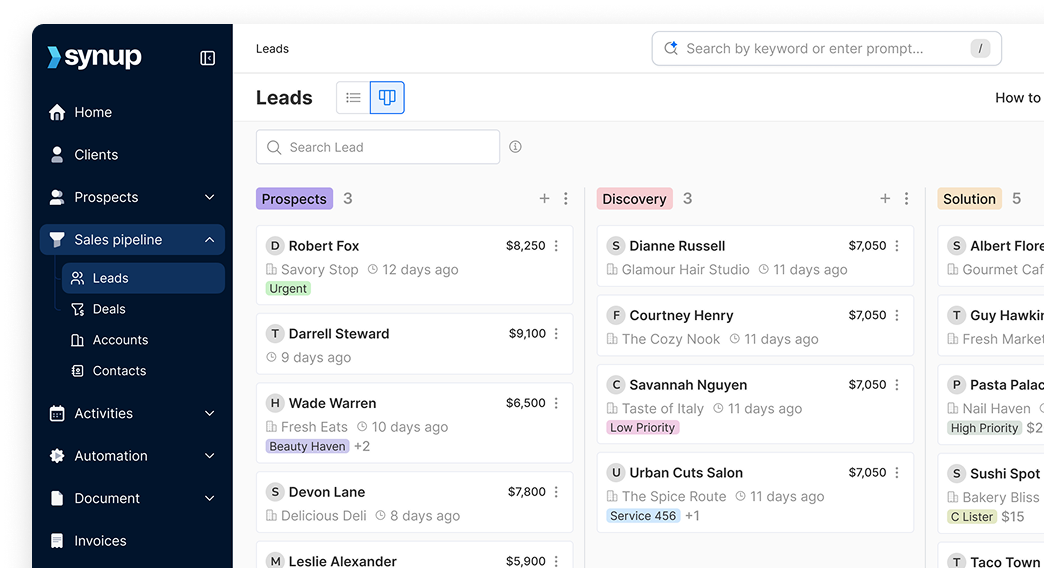Your Go-to Multi-Location SEO Guide To Help Your Business Get Found
Want more search visibility for your multi-location business? Here’s a comprehensive multi-location SEO guide that will help you get in front of your customers online.
Over 50% of all online searches have local intent as people look for information about products and services near them. And almost 80% of these searches convert, making it crucial for businesses to optimize their local digital presence.
Good news: local SEO helps local businesses maintain their online presence, mass market and drive more people to their places of business. But what if your business operates in multiple locations? How would you create, let alone optimize, a digital presence for each location you operate in? The secret lies in multiple location SEO.
Multi-location SEO is the technique that allows businesses with multiple locations to optimize their website for different locations where they operate. It seems simple, but there’s more than meets the eye here. It requires a thorough understanding of the local markets, customer demographics, their localized needs, proximity to similar businesses and more.
It’s not a one-size-fits-all approach; it's a customized strategy that takes into account individual location factors, which we will talk about in this multiple location SEO guide.
The goal of this blog is to help you increase the chances for your local business to get found through local searches in multiple locations. Let's begin!
What is Multi-location SEO?
Multiple location SEO is the process of optimizing your website for the different areas and cities your business operates in. Of course, this is for search engines.
The only reason to do that is to get found through local searches–those “near me” and map searches on Google, Bing, or Apple Maps. It is a way of letting search engines differentiate between your business’s multiple locations, so they give customers relevant information about your business in their location.
Businesses with franchises and branches across different locations rely on a robust SEO strategy for multiple locations.

How single-location SEO differs from multi-location SEO
There are some clear differences between optimizing for a single location and multiple locations, such as:
- Resources: Multiple location SEO requires more resources like time, effort and budget because of the need to manage individual profiles and create specific content and links for each location.
- Complexity: It is complicated because you have to apply custom location-specific strategies instead of general frameworks. Things such as keyword research and technical aspects have to be viewed at a more-detailed local angle.
- Consistency: Maintaining consistency in all your location profiles is challenging. Business details, pictures, services, products etc., need to be kept consistent on all the channels for each location.
- Localization: When it comes to multi-location SEO, you need fully localized tactics such as links to a town/city, links to citations in local directories and queries in particular to that city/town.
Possible Challenges Multi-Location Businesses Encounter When Performing SEO
- Managing several customer reviews and profiles in a large number of locations.
- Consistently updating and optimizing all the location profiles, which consumes a lot of time.
- Creating fail-proof multi-channel local marketing strategies, which incur higher costs.
- Localizing global SEO campaigns for every market of the local region.
- Tracking granular location-level metrics and performance.
- Removing local content duplicity, irrelevancy, and/or errors.
- Targeting audiences in the areas of business operations.
How To Set Up Your Multiple Location SEO Foundation
Website structure
The website setup can make or break your local SEO strategy. Creating dedicated and uniquely optimized pages for each location will help you get found in searches for "near me” or “in city name." or "in zip code". A structured URL path with the location name can further solidify this.
Examples:
home: www.domain.com
Locations: www.domain.com/locations or locations.domain.com
State specific: www.domain.com/locations/state or locations.domain.com/state
City specific: www.domain/com/locations/state/city or locations.domain.com/state/city
Location specific: www.domain/com/locations/state/city/street-address or locations.domain.com/state/city/street-address
Ensure you have an easy to access store or location finder that users can use to easily locate the store/branch/office/practitioner closest to the,
Make sure to use the location name in the page title, H1 header and content to laser target that location. At the same time, avoid duplication with a centralized navigation and core service information. Links between all the place pages can strengthen internal linking as well. Additionally, you can create pages for each product/service that offer. Optimize each location page with hyper local information and if you have the resources utlize schema markup on the pages.
Tip: With an API driven solution like Synup Store Locator
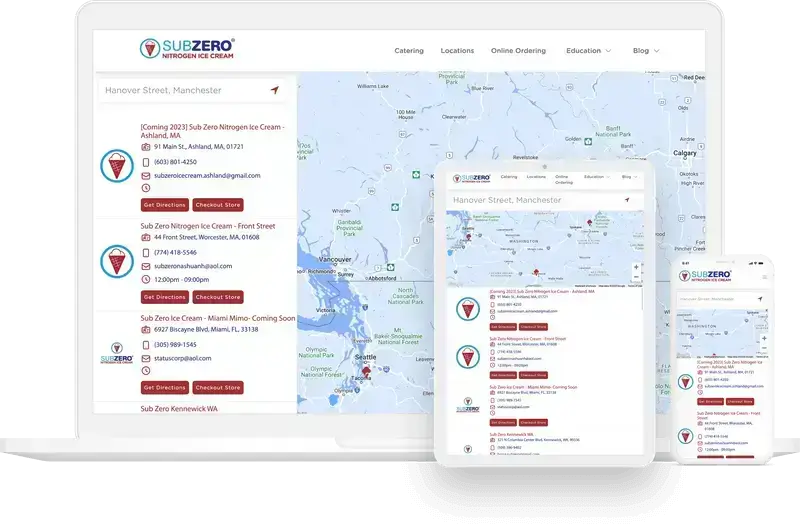
Centralized vs. Decentralized SEO Strategies
In centralized SEO, you perform all SEO efforts, such as keyword research, technical setup, and link building, on the main website.
In decentralized SEO, you set up individual mini-sites or profiles for each location that act independently.
Both methods have pros and cons depending on factors like business model, resources and number of outlets. For smaller chains, centralized SEO keeps maintenance simple but lacks localization.
Decentralized SEO allows micro-optimization but is complex to set up and coordinate initially for location SEO.
The hybrid approach can strike a balance here. For example, hosting the search-friendly site architecture on the main domain while letting location pages control their immediate local visibility factors is a scalable strategy worth considering.
Importance of a consistent NAP (Name, Address, Phone Number) across locations
Maintaining consistency in your business Name, Address, and Phone number shared publicly is crucial for location SEO and customer communication. Any errors or differences can confuse users and search engines about your brand and its location.
Key steps include:
- Verifying NAP info accurately while setting up your Google business profiles
- Keeping an eye out for changes on your Google business profiles and auto-rejecting suggested updates
- Centralizing NAP entry on your website by using one single source of truth
- Double checking aggregator and major listings periodically, posting content, offers, images etc
- Streamlining the name for various platforms
- Requesting updates for outdated social profiles as well as local directories.
SEO Tactics for Multiple Locations
Perform keyword research for each location
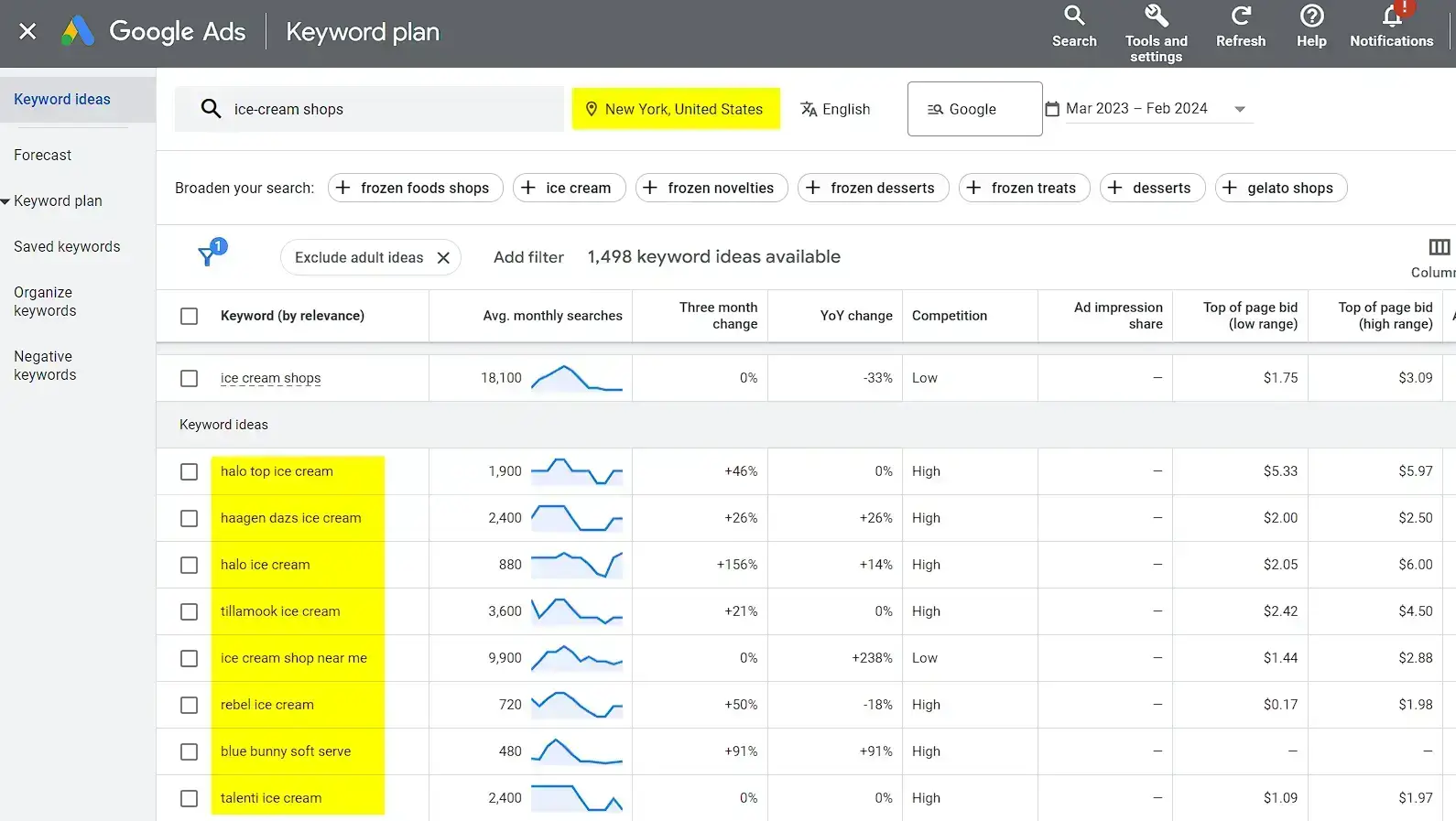
Keyword research is the foundation for any SEO strategy, including local SEO. It is important to find search terms relevant to individual areas you want to get discovered in. Tools such as Google Keyword Planner, Semrush, aHrefs, KeywordInsights and even good old Google Search etc can help you find low-competing location-specific keywords relevant to your business like "pizza place in City" or "gyms in City/state."
Focusing content and linking efforts around these localized keywords can make a big difference in local visibility for your business. Additionally, make a list of all your products and services relevant to your business and create content around them.
Create location-specific content
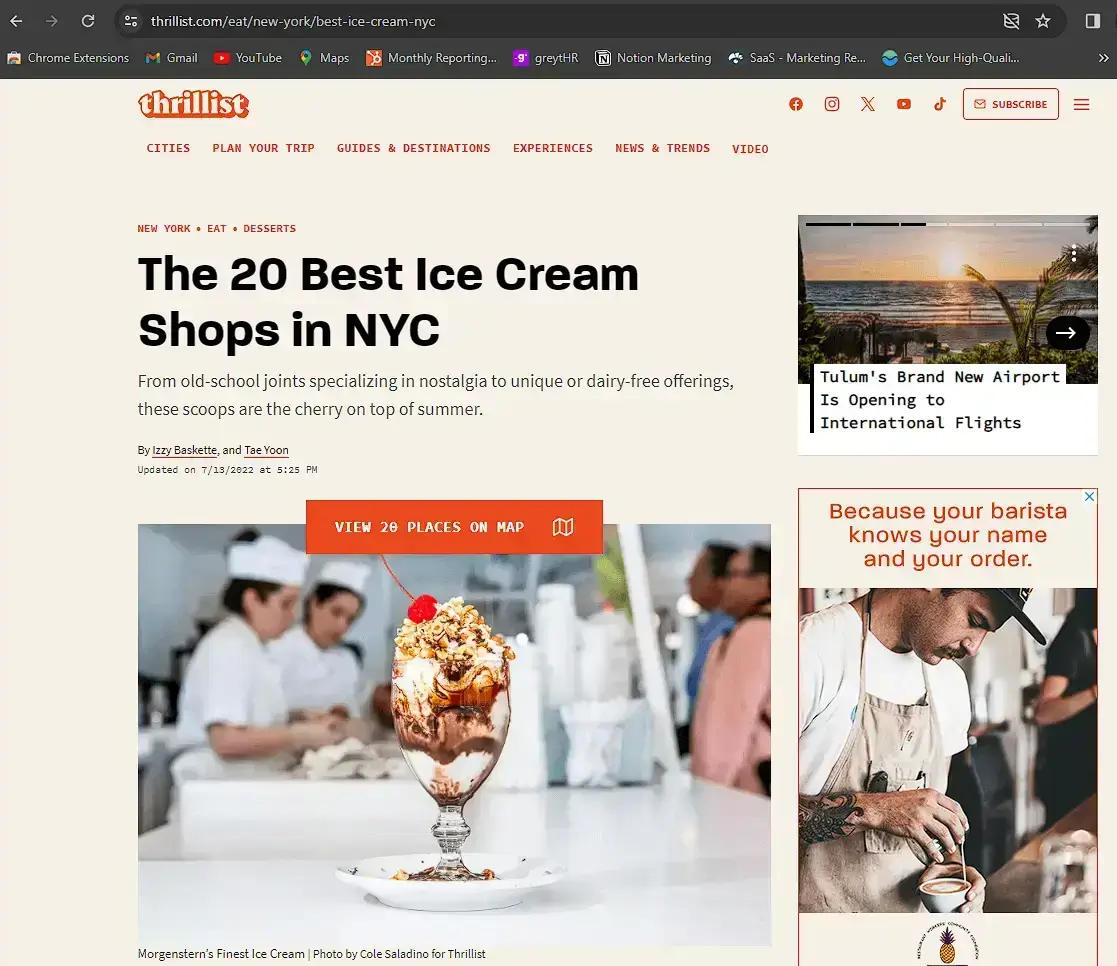
Location pages need differentiated copy that's useful for readers in different locations. Avoid cookie-cutter descriptions, and highlight what makes each business branch unique, along with area-specific calls-to-action.
Rich details such as address, contact info, business hours etc., paired with images capture local attention. Community-relevant topics in articles can strengthen local authority as well. Make sure to include the target location name multiple times in headings, content, and anchor text.
Create landing pages for each location

Optimizing a landing page dedicated to each target location lays the proper groundwork for organic reach.
- A consistent namespace and XML setup signals credibility for search engines.
- Information architecture and resource allocation focused on individual pages make local intent visible to searchers.
- Local store directories with deep links fortify your on-page strategy.
Companies achieving success with multi-location SEO rely on such inherent location-centric onsite best practices.
The above tactical tips for leveraging geo-relevant elements form the core foundation.
Now, let's look into off-page activities and other ranking factors businesses must consider for a complete local SEO approach.
Tip: With an API driven solution like Synup Store Locator/Pages you can also push location specific attributes, offers customer reviews from your Google business profile or other sources to location specific pages to enhance the user experience and add social proof .
Google My Business for Multi-Location Businesses
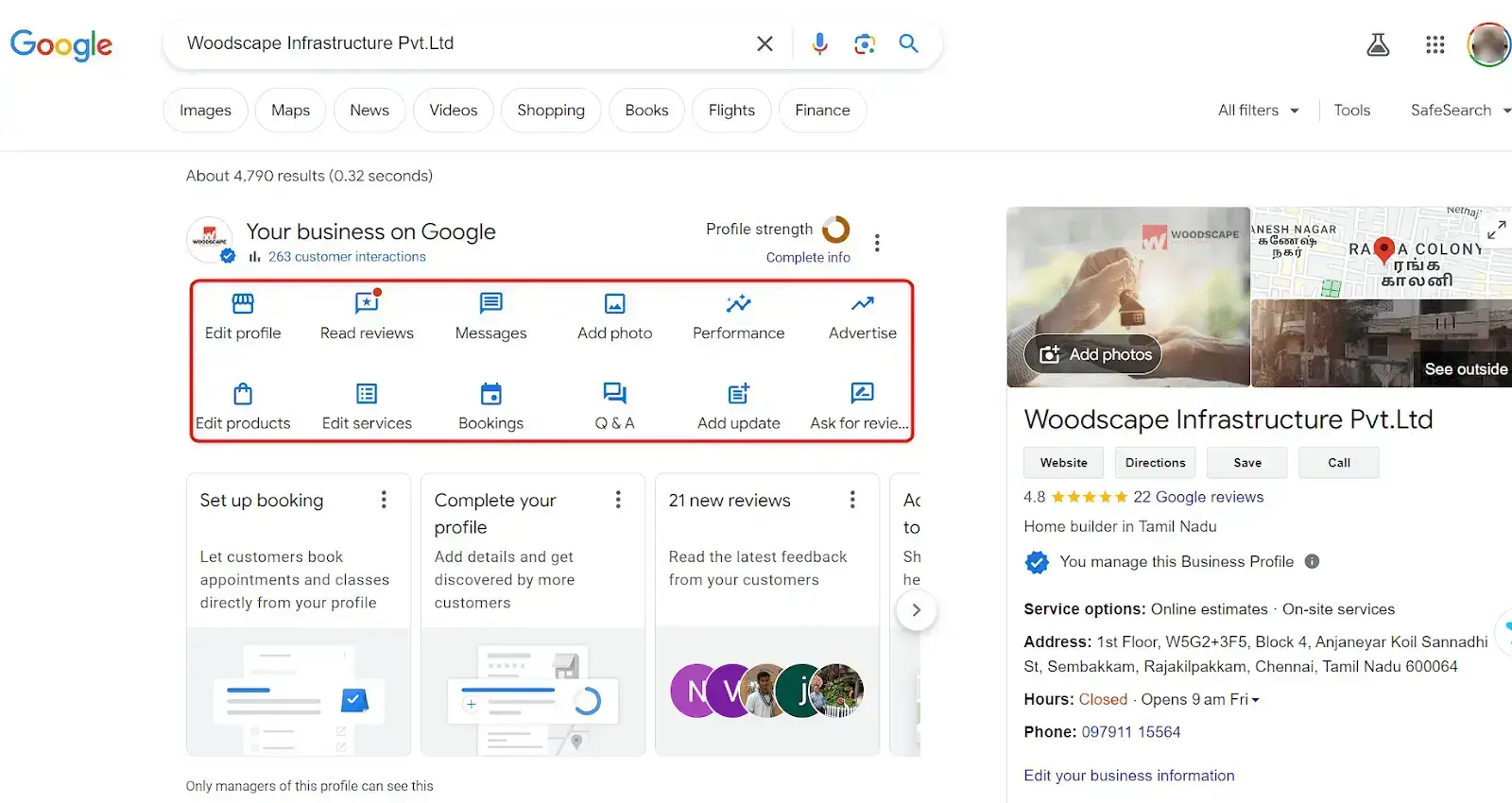
How to Set-up and optimize Google My Business for each location:
Getting Google Business Profiles right is essential for multi-location SEO success. You'll want to set up a complete GBP profile for each store. This includes adding key info such as business name, address, phone number, hours accurately, attributes that accurately represents your business. Beyond the basics, take your time to optimize each listing with photos, service areas, and customer reviews.
Consistency is important when managing multiple GMB profiles. Keep formats, categories, and other details aligned across locations. Google also wants to see actual staff and real operations at each address. Avoid virtual offices that don't reflect your business reality.
You can easily set up new locations within your main GMB account. Just be sure to thoroughly complete the claimed profile for each store. This gives Google accurate signals about your local presence to show customers. Don't rush the process; quality is better than speed here.
Managing reviews and ratings across different locations
Collection reviews are a must for every local SEO campaign. While overall brand reviews have merits, local searches value reviews specific to a single location. Make reviewing easy by adding call-to-actions both online and on printed material in stores so that local customers can view/access them easily.
When negative reviews come up(and they will(, respond to reviewers respectfully and work to make things right. Customers will notice your effort to solve their problems. If ratings dip at one spot, don't ignore it. Engage with the customers who left those reviews to improve opinions over time with great service.
Also, monitor review platforms regularly. It's wise to track not just Google but sites like Facebook, Yellowpages, BBB but industry specific sites in your niche like Tripadvisor, Trustpilot, Zomato, too. These opinions similarly influence local SEO and reputation and can influence local customers. With diligence, you can build a strong presence for every location step by step through reviews. Just focus on serving people well every day.
Link Building Strategies
There are a number of strategies you can use to improve your local backlink profile. Some of them are as follows:

1. Building local backlinks for each location
Getting high-quality links pointing to your location pages will help each one rank better locally. But link building takes time, so you need smart tactics. Look for connections through local groups and associations tied to your field. Offer to guest post on neighborhood blogs covering stuff close to home.
Join community chambers and do some volunteering. Communities like to reward active members. See if the library or hometown paper will let you write about services for citizens.
Sponsor local sports clubs or charity drives, too. Partnerships like these create chances to swap links, enriching your linking presence place-by-place.
Of course, quality matters most. So make sure any links earned genuinely relate to that spot and don't feel like bogus backlinks. Natural relationships you build over months yield the sweetest SEO fruits.
2. Leveraging local partnerships and community involvement
Get your brand out there by teaming up with your business-related local companies.
Maybe an insurance agent can refer customers looking for your products in exchange for mutual links and ads.
Or partner with nearby shops to hand out combined deals and coupons–it engages locals while building links for your website.
Join a chamber of commerce and become an active member. Show up at chamber meetings and events. Volunteer your time and skills to help local non-profits and neighborhood organizations. Ask to be on boards or advisory councils. These community connections will lead to valuable backlinks over time if you put in real effort to give back.
Overall, prioritize quality links from sources personally involved where your stores operate. Doing right by area residents inspires positive recognition online and offline, which search engines appreciate, too.
Using Social Media for Local Engagement
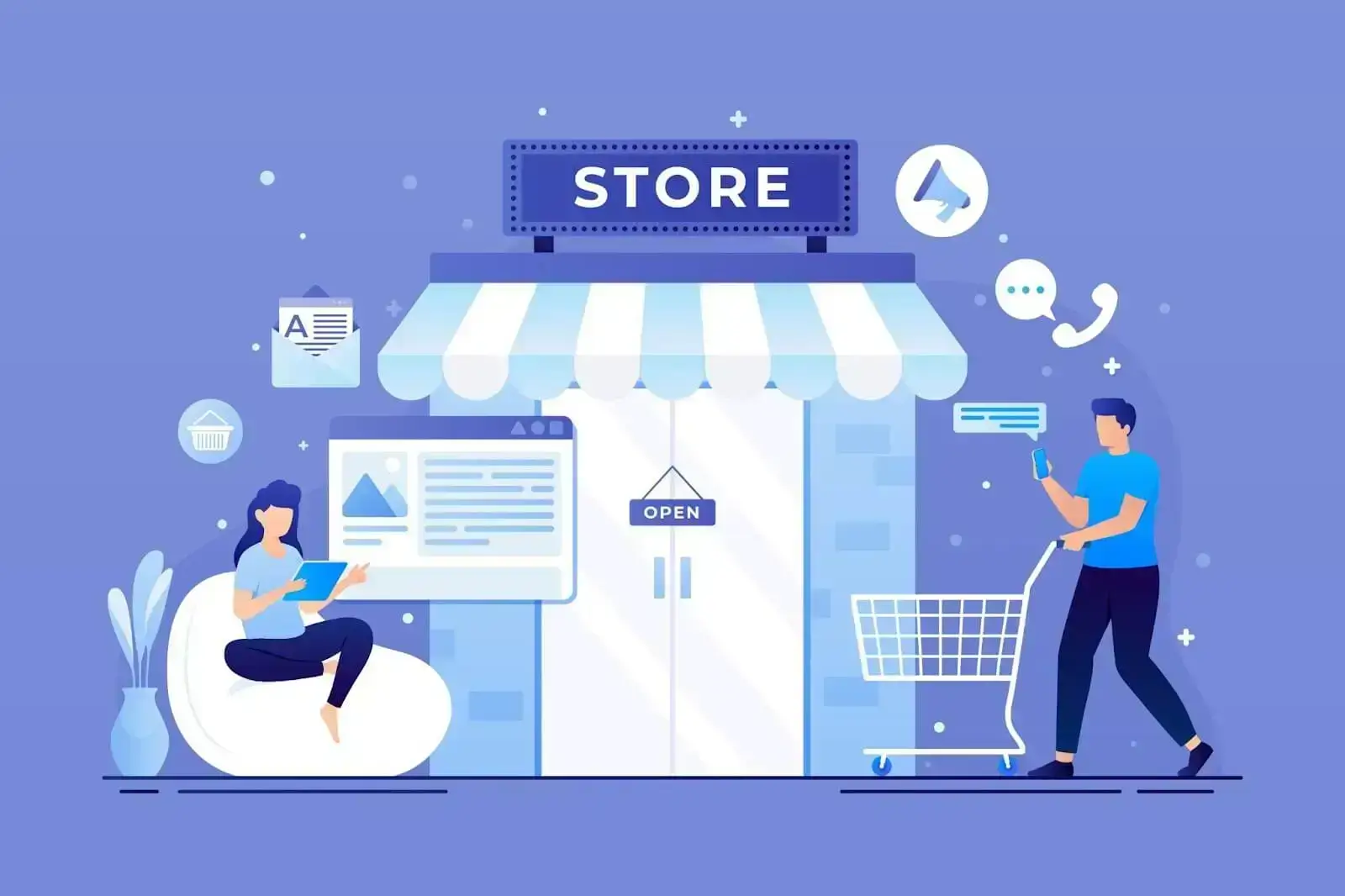
Social platforms give your multi-location business new ways to connect with nearby patrons. While network-wide engagement attracts some local customers, targeting your efforts at neighborhood levels inspires stronger community bonds, which is crucial for multi-location SEO success.
On Facebook, make individual pages for every store and run local ads targeting specific locations by postal codes or areas. Post often about nearby happenings, sponsored hometown activities, and product sales, compelling locals into following each shop page.
On Instagram, showcase beautiful pictures highlighting what makes your brand or location unique–like staff, architecture, or customer fun. Also, include neighborhood-specific hashtags. Encourage check-ins with rewards like coupon codes that are downloadable right on the spot.
For X (formery Twitter), target highly local searches such as “business name in city” to boost engagement. Also, include only the relevant hashtags. Retweeting influencers from different locations builds your reputation while familiarizing people from other locations.
Creating location-specific social media campaigns
When it comes to creating location-specific social media campaigns, you need to experiment to figure out what works and what doesn’t.
Run contests that would be available only to people near certain shops by geo-tagging posts and targeting ads to within a certain mile radius. Coordinate with nearby businesses to cross-promote each other, magnifying your reach location by location.
Schedule meetups at shops to introduce new products or services accompanied by social posting about the event. Encourage photos tagged with shop-location hashtags. Thank participants with digital gifts or discount codes for spending locally.
These hyper-localized social efforts can amplify your social media presence right where potential customers are most active while deepening community bonds.
Mobile Optimization for Local SEO
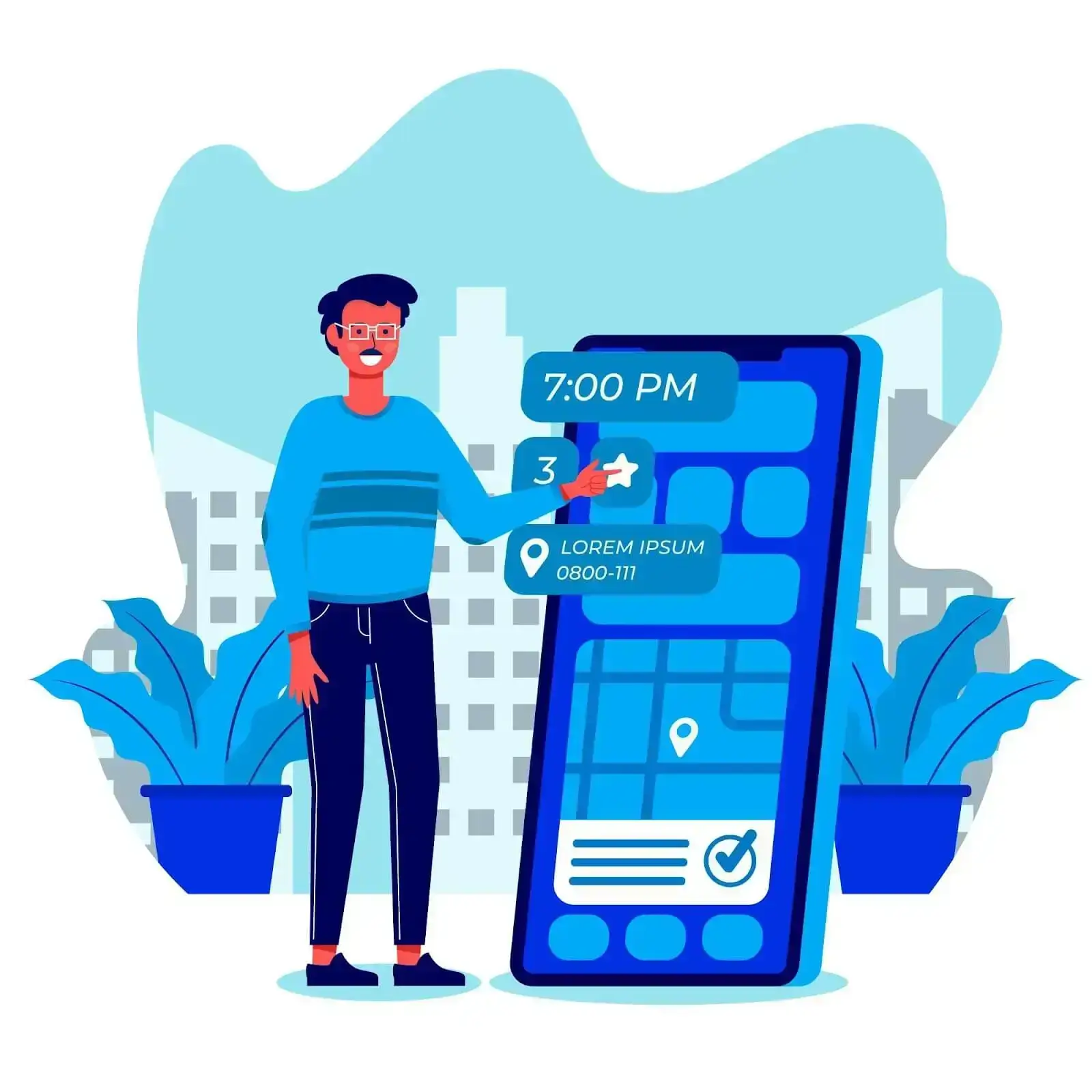
Importance of mobile-friendly websites for local searches
- Local searches are increasingly performed on mobile devices. You want your business to show up in search results, no matter how users search.
- Mobile-friendly websites load faster on phones, so users have a better experience. This signals to Google that your site prioritizes mobile users.
- Responsive design adapts your site to any screen size so people can access info seamlessly regardless of device.
Local mobile marketing strategies:
- Enhance your business listing on Google with photos relevant to different locations to better showcase each storefront.
- Publish location-specific blog content with relevant keywords optimized for mobile screens. Promote on social media for local reach.
- Create location-based offers through tools like BadgeCoupons or GMB offer ads to boost visits to each local store.
- Leverage proximity-based notifications via geo-targeted pins on platforms like Facebook or customized landing pages on your website to attract customers near each store.
Managing Reviews and Analytics
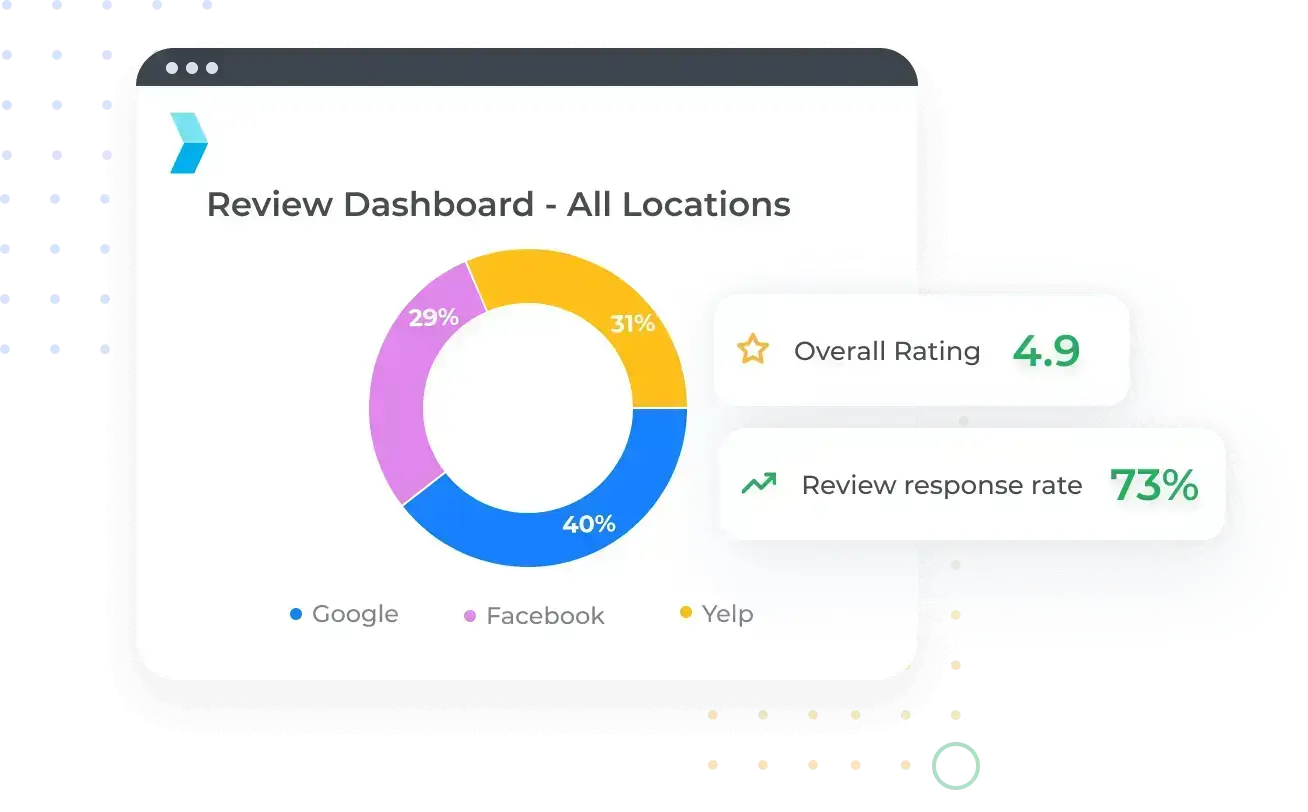
Managing reviews and analyzing marketing efforts across multiple platforms is critical for any local business owning stores in more than one city. By keeping an eye on customer feedback and search performance per location, you get a pulse of what's really going on locally. This helps figure out what's working well and where you need improvement.
There are certain digital tools and techniques that can help you track online reviews and multiple location SEO performance for different areas your stores serve.
Google's Search Console and Analytics are a good starting point to get a sense of search queries, organic traffic, and user behavior specific to each website. But you also want more granular insights into reviews and SEO factors for each location individually.
Review management tools like Synup allow you to monitor 3rd party reviews people leave on Google Business Profiles, Facebook Pages, etc., in one place. They alert you to new reviews, so nothing slips under the radar. This lets you quickly address concerns and improve the ways of working. With different business locations, keeping reviews consistent is important for a successful multi-location SEO strategy'.
Check if the information, such as address, contact details for each individual place, is complete and rightly presented everywhere. This avoids confusion among potential consumers researching you in their city.
Another powerful solution is SEMrush. Besides competitor analysis, it audits technical SEO problems separately for each site in your online network. This eases identifying errors, hurdling discovery of a specific branch by local searchers.
Regular technical SEO audits should ideally be a habit if you are seriously planning to rank your business stores higher in multiple locations.
Constant optimization keeps you stay ahead of the evolving algorithm.
Tracking performance with detailed analytics helps focus efforts well. The audit approaches aid in interpreting search behavior and customizing your strategy for each branch based on search behavior.
So, whether optimizing content, building more natural-looking links, or refining campaigns, the steps taken can address local-level user demands. That alone can garner you large gains in catering to community requirements with multi-location SEO strategies.
With streamlined evaluation of reviews and stats on a regular basis across areas, you remain alert to pinpoint changes swiftly. This makes certain customer expectations are fulfilled everywhere at all times. And you leave no stone unturned in serving them.
Store Locator/Store Finder and Local Landing Pages
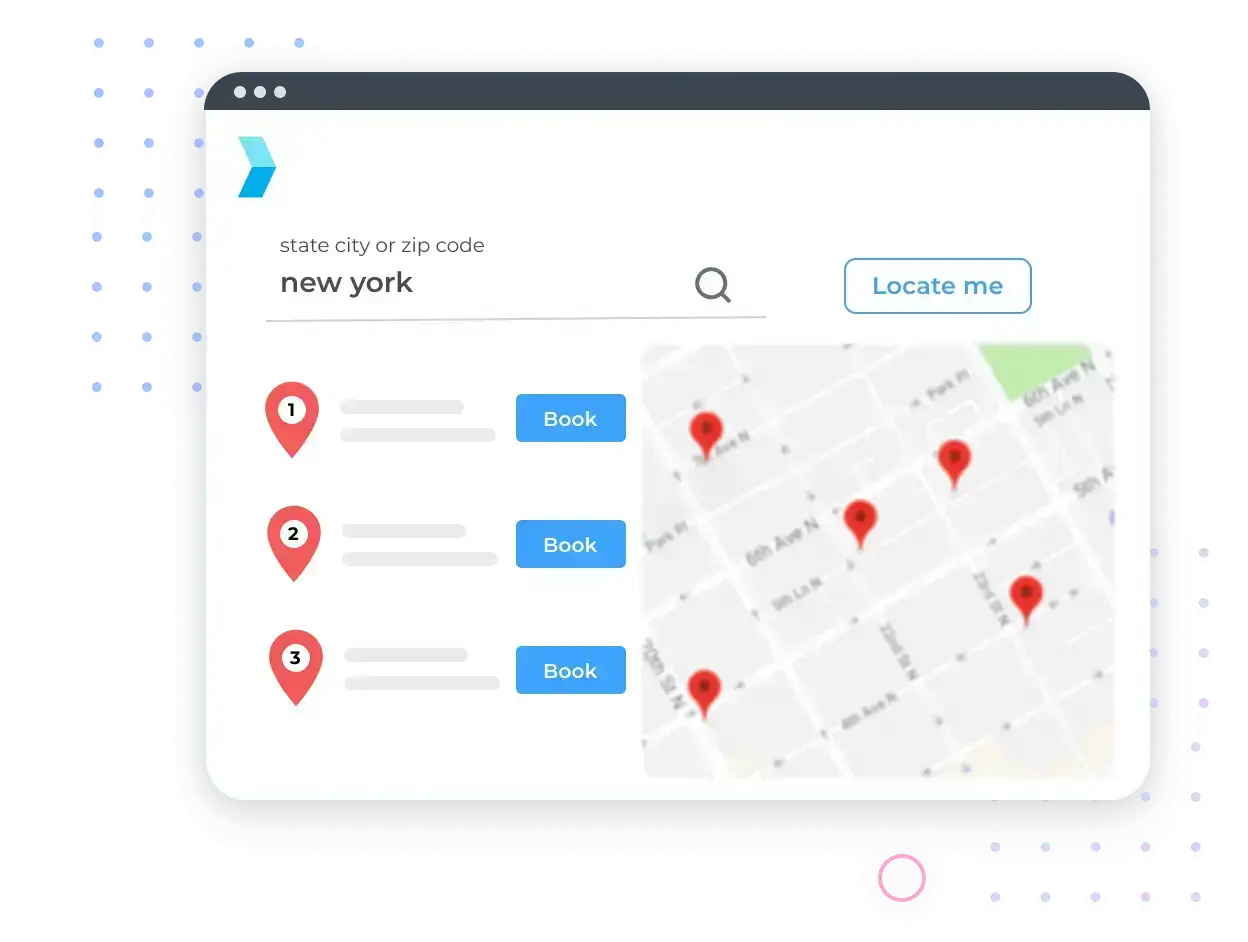
Store locators are immensely vital for enterprises owning branches spread over several locations. It helps customers smoothly discover your business nearby.
Creating an interactive map listing for all outlets makes it easy for local customers to navigate options as per their spot. They just need to enter an address or cities of interest to find your shop easily with minimal effort.
A splendid example is that of McDonald's. Their store finder page clearly demarcates locations countrywide. By clicking on a particular state, it zooms into cities/areas containing that state's stores.
Visitors can see the site of each outlet together with route navigation. This creates a user-friendly encounter, earning the brand leads throughout the domains they function.
In addition to general site maps, individualized area pages supply extra details, helping web users select your store nearest to their locality. These domain-optimized landing pages for every place should include contact details, operating hours, and promotionals offers valid in that town to generate engagement and visits from locals searching via geographic keywords.
Providing detailed region statistics customized as per the market demands aids in showing worth to searchers. Comprehensive location pages may also rank higher locally since search engines recognize their importance and relevance to prospects searching within a certain circumference.
Future Trends in Multi-Location SEO
The future of local search is continually evolving, thanks to new technologies and changing consumer behavior. As such, multi-location SEO experts must keep up with emerging trends to stay ahead. Here are a few areas that may impact your multi-location SEO strategy going forward.

Emerging trends and technologies impacting multi-location SEO.
- Voice search is becoming increasingly popular with the rise of voice assistants like Siri, Alexa and Google Assistant.
- Many local searches are now done by speaking your request rather than typing it into a search box. This will likely affect the way SEO is done for locations, as keywords, titles, and descriptions need to be more conversational for voice.
- You'll need a voice search strategy as a part of your overall multi-location approach.
- Augmented reality (AR) is another buzzword in tech right now. As AR applications become more mainstream, people may start pointing their phones at locations to pull up information instead of searching online.
- Multi-location brands should consider adding relevant AR content like product demonstrations, virtual tours, or interactive maps for each local store. This improves the in-store experience and makes it easier for potential customers to discover your locations through emerging AR-based seo multiple locations techniques.
- As internet-connected devices continue multiplying, the "Internet of Things" (IoT) will grow more important for an SEO strategy for multiple locations. Examples include smart home appliances, autonomous vehicles, IoT kiosks and others.
- Brands need to think about how their multiple locations show up or can be accessed through these new devices. The right integration could allow searching or interacting with nearby locations directly from various IoT platforms.
Preparing for the future of local search
To summarize, some of the main future trends multi-location marketers need to consider for local search include providing seamless experiences through voice, AR, and IoT. Customers now expect immediate, hands-free access to information, especially about nearby businesses.
Search Engine Marketers with a forward-thinking approach will see emerging technologies, understand shifting user behaviors, and adapt their multi-location SEO strategy accordingly. It's not enough to optimize for today; brands must also offer value through the technologies their customers will use to find them tomorrow.
Are you prepared for the future of local SEO with an innovative, multi-location strategy? Let us know in the comments below.




